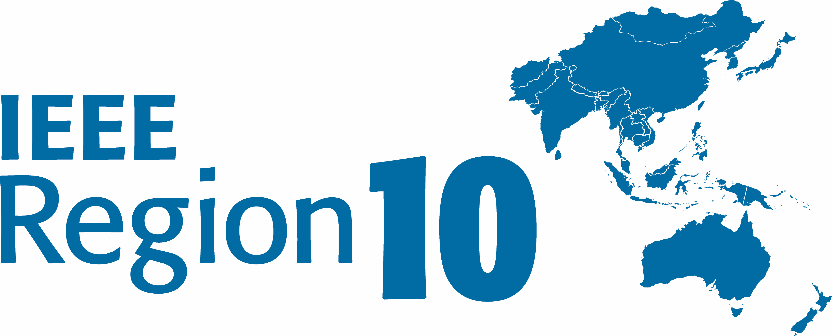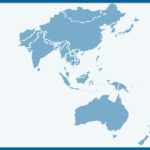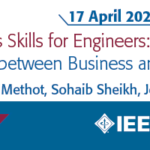
1st – 3rd December 2020, Virtual Kuching, Sarawak, Malaysia
Written by: Mohammad Faizal Ahmad Fauzi, Chair for the R10 Newsletter Committee & General Co-Chair for IEEE R10HTC2020
Like the other two flagship Region 10 conferences, TENCON2020 and TENSYMP2020, the organizing committee for R10HTC2020 decided to conduct the conference as a fully virtual event this year due to COVID19 pandemic. With the theme Digital Ecosystem for Humanity, the 8th edition of the R10HTC series were successfully hosted by the IEEE Sarawak Subsection on a Zoom online meeting platform from 30th November to 3rd December 2020. It is a historic moment as this was the first time a Subsection has been entrusted to host a flagship Region 10 conference. The conference is made up of rich variety of events including keynote and invited speeches, regular and special sessions, as well as workshop.
Besides, in conjunction with the conference, IEEE Malaysia Section conducted the Panel of Conference Organizers Workshop (POCO), with sponsorship from Region 10. In total, 87 papers from different aspects of humanitarian technologies were presented in 16 regular sessions and 3 special sessions throughout the conference. The regular sessions cover topics such as Electrical & Electronic Engineering, Computing and Information Technology, Artificial Intelligence, Healthcare & Biomedical Engineering, Power & Energy, Education, Food Science & Agriculture, Smart City & Smart Village, and Industrial Revolution 4.0. The three special sessions were on Integrating Humanity into Industry 4.0, Social Innovation and Creativity during COVID-19, and Technology for Ageing Population.

While the conference proper only started on Tuesday 1st December, the first day was filled with technical workshop, special session on humanitarian technology, as well as POCO workshop. The workshop on Data Analytics Using Machine Learning Techniques were facilitated by Rathimala Kannan. The workshop is especially relevant to those interested in developing business data analytical to make informed business decisions. The special session on humanitarian technology consists of three lectures delivered by prominent speakers in the area. Celia Shahnaz delivered a talk on Humanitarian Activities and Technologies during Covid-19 Pandemic in Asia Pacific Region, while local speaker Then Yi Lung discussed the Activities of IEEE Sarawak SIGHT. The final lecture of the special session was given by Jing Dong (R10 HAC Chair) and Shaikh Fattah on the Introduction for IEEE SIGHT; Effective Community Engagement to Design Sustainable Humanitarian Projects to Combat COVID19. Finally, the POCO workshop featured 12 speakers discussing conference leadership practices, challenges in the conference landscape, envisioning the future, and launching new conference initiatives. Separate report on POCO2020 is included in the Other Articles section of the newsletter.


The first day of the conference proper started with a brief opening ceremony where all participants were welcomed by the IEEE Sarawak Subsection Chair, Victor Wong. R10HTC2020 General Co-Chair, Mohammad Faizal Ahmad Fauzi then shared with the audiences how the Sarawak Subsection, which was only formed in 2015, were able to convince Region 10 to entrust the young Subsection to host one of its flagship conferences. Technical Program Chair, David Bong then shared the technical review aspect of this year’s conference. Overall 154 submissions were received from 12 countries, with 26% of the papers from Malaysia. After rigorous review process, 108 papers were accepted (acceptance rate of 70%), and 87 papers registered for presentation at the conference. The conference General Chair, Lau Bee Theng then proceeded to officially open the conference, before R10 Director, Akinori Nishihara gave an update on IEEE Region 10 activities and initiatives. The conference is also honored to have Professor John Wilson, the Deputy Vice-Chancellor and Chief Executive Officer of Swinburne University of Technology Sarawak to grace the event via a pre-recorded video.

The first keynote of the conference was delivered by Sye Loong Keoh from the University of Glasgow, Singapore, with the title Internet-of-Things (IoT): Accelerating the Smart City Revolution. 38 oral presentations, divided into 8 regular sessions, rounded up the first day of the conference. To ensure smooth run of the conference, all presentations were pre-recorded with the presenter taking up live questions following their respective played-back presentations.

The second day of the conference started with another keynote speech on A Journey Towards Creating Impact with Technology for People, delivered by Surapa Thiemjarus from the Assistive Technology and Medical Devices Research Center (A-MED), National Science and Technology Development Agency (NSTDA), Thailand. Her talk is followed by an invited talk on Humanitarian Activities and Technologies for the 21st Century, given by Supavadee Aramvith. Another 34 presentations were carried out in 8 oral sessions to complete the proceedings for the second day.

The third and final day of the conference were scheduled for special sessions. The three special sessions on Integrating Humanity into Industry 4.0, Social Innovation and Creativity during COVID-19, and Technology for Ageing Population were carried out concurrently with 15 presentations. Before the special sessions, the third day started with the final keynote by Jiong Jin from Swinburne University of Technology, Melbourne who delivered a talk on Energy Sustainable Fog Information System for Infrastructure-less. This is followed by the final invited talk by Lance Fung, the 2021-2022 R10 Director-Elect on Educational Activities and Digital Technology for Humanity and Life-Long Learning.
The conference concluded with a closing ceremony officiated by Jing Dong, IEEE Region 10 HC Chair. During the closing ceremony, 5 best paper awards were announced:
Best Paper Award
- Integrating Humanitarian Technology in Computer Science Education to Internalize Independent Campus Policy: A Case in IPB University, Auzi Asfarian, Dean Apriana Ramadhan, Firman Ardiansyah
- Effectiveness of an Automated Reading Tutor Design for Filipino Speaking Children, Ronald Pascual
Best Student Paper Award
- A Preliminary Study on Effectiveness of an Ingeniously Developed Wearable Assistive Device, Vishnu Rajendran S, Harish Mohan T, Bhavani Rao R, Jogesh S Nanda, Karishma Sebastian
- Feature Selection Based Twin-Support Vector Machine for the diagnosis of Parkinson’s Disease, Surendrabikram Thapa, Surabhi Adhikari, Awishkar Ghimire, Anshuman Aditya
- Towards an Efficient and Secure Blood Bank Management System, W.A.D.T.L. Wijayaweera, P.A.J. Sanadaruwan, U.D.L. Dolapihilla, D.W.N.R. Karunathilaka, W. H. Rankothge, N. Gamage
In conjunction with IEEE R10HTC 2020, the Sarawak Subsection as the host was also awarded 2 grants from IEEE R10 TENHUMCH and IEEE HAC to conduct three humanitarian projects in Sarawak (https://r10htc2020.org/projects).
Project 1 – Community Empowerment: Promoting Safe and Sustainable Food Production

Food security in a community exists when all people at all times have both physical and economic access to sufficient food to meet their dietary needs for productive and healthy lives. The pandemic caused by the new coronavirus COVID-19 threatened food shortages due to supply chain disruption and labor shortages. Many households are vulnerable to the impact of a severe pandemic due to the impacts on the economic and social systems. This Humanitarian Engineering project aims to boost the local communities’ resilience of food supplies (i.e., enhance food security) through encouraging the establishment of family/kitchen gardens with the use of organic fertilizer, compost.

As our population increases and farmland disappears to commercial and residential development, it is becoming increasingly important to produce food, clothing, forest and floral products on less land for more people. Fertilizer plays a crucial role in improving agriculture efficiency, in particular organic fertilizer to promote food production in an ecologically sound way. The five-week project successfully reached out to over 50 local community members in the sub-urban areas of Kuching, Sarawak. Virtual workshops were conducted to educate and guide participants on systematic and informed home composting of kitchen waste. Each participating household was provided with a set of composting kit and on-site guidance was given on the setting up of the composting system. Swinburne University Sarawak researchers guided the participants throughout the project via virtual platforms on the know-hows and technical challenges of the composting process.
Project 2 – Enhancing Humanitarian Engineering Within the Vulnerable Communities

Knowledge of household on clean water and hygiene is important particularly in vulnerable communities where water supply is insufficient and highly contaminated. Water scarcity and inferior water quality could significantly affect the health and well-being of children. IEEE in collaboration with Swinburne University of Technology Sarawak and local NGO, organized a humanitarian project for vulnerable communities in conjunction with the IEEE Region 10 Humanitarian Technologies Conference 2020 held virtually in Kuching. The project was spearhead by Ir. Dr. Angelia Liew, Dr. Hadi Nabipour, Dr. Tay Fei Siang, Mohd Elfy Mersal, Dr. Lau Bee Theng (General Chair for IEEE R10 HTC2020) and student volunteers from various engineering background. The team visited a small squatter village near Lorong Chawan, just a kilometre from the Kuching city center on 20th December 2020. The 51 households of about 230 villagers including 61 children mostly collect their drinking water from a standpipe.
The aims of the project were to bring basic clean water knowledge alongside awareness of the Covid-19 pandemic within vulnerable communities and to encourage our engineering students to contribute to building a more sustainable, stable, and equitable world, to promote creativity and problem-solving skills to engineer inexpensive solutions for real-world challenges. The team successfully conducted three workshops on the importance of clean water and ways to build homemade water filter, for 45 children. Each child was given a set of water filtration kit to try at home. Also distributed were Pack of Hope stationaries and Pack of Love Christmas goodies for each child, and masks and sanitisers for each household. The project serves as a platform for humanitarian efforts and provides a rewarding and enriching experience for the student volunteers, boosting their personal development and their understanding of the challenges facing the world today. The project received a USD1000 fund awarded by the IEEE Humanitarian Activities Committee Events Fund in conjunction with the conference.
Project 3 – Tackling Challenges to Water-Energy-Food Security (WEF) Nexus

The Water-Energy-Food (WEF) nexus is a framework used to show the inter-connection between these three resource sectors. According to the Population Division of the United Nationals Department of Economic and Social Affairs, the global population is expected to reach 9.7 billion in 2050 and could peak at 11 billion by the end of the 21st century. As the global population continue to increase, issues such as food scarcity, availability of freshwater and energy shortage would become more prominent global challenges. IEEE Sarawak Subsection decided to undertake this humanitarian project to raise the awareness level for the WEF nexus among Malaysian students. As Malaysia is a country that is endowed with stable governance and rich natural resources and biodiversity, Malaysian students rarely venture to contemplate on the potential issue of resource scarcity in the future.



It is believed that educating Malaysian students on the WEF nexus is an important step to starting a student discourse on the challenges and potential solutions on the WEF Nexus in the coming years. The project reached out to 45 students through a series of coding and electronics bootcamps held in three main cities in Sarawak i.e. Kuching, Sibu and Miri in December 2020. The program received an award of USD4000 fund from the IEEE Humanitarian Activities Committee 2020. The project was initiated by Associate Professor Lau Bee Theng, in conjunction with the IEEE Region 10 International Humanitarian Technology Conference 2020, that was co-organized with Swinburne University, Sarawak. The modules for the workshop were developed by Dr. Xavier Chee from the biotechnology program.
Well done to the organizing team from the Sarawak Subsection, the first Subsection to host a flagship Region 10 conference!


